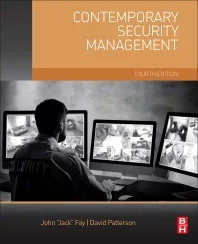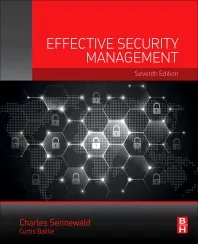Owen Key: Keeping Calgary's Citizens Safe
As the Chief Security Officer and Chief Information Security Officer for The City of Calgary, Owen Key’s favorite part of working in the government sector is the variety of his work. “I’ve also worked for both the police service in New Zealand and the private sector here in Canada, and the variety of work extends from looking after water and waste water treatment plants to the full transit system we have here,” Key says. “We have roads, golf courses, community-enabled services, including youth probation, recreation centers and arenas. You name it, we do it.”
Calgary’s corporate security mission statement has two parts; to protect the assets of The City of Calgary and to assist other business units in providing solutions for public safety, says Key. “We don’t just look after internal assets anymore. Now we actually run and monitor all the cameras in the downtown core on behalf of the Calgary Police Service,” he says.
The security department also has other public safety functions such as park patrols, gate openings and closings, and special events security. “We don’t provide the public safety assistance directly, it’s still the role of the Calgary Police Service and other service agencies, but we assist them in providing those services,” says Key.
The corporate security program is split into seven separate sections, including administration, physical security, internal investigations, technical operations and support, security operations, security advisory and information security, according to Key. “We have a lot of critical infrastructure, like water and waste water treatment plans, transit facilities and road facilities,” he says. “All of these play an important part of providing our services, and without those services, as we found with the 2013 floods, a lot of those come to a grinding halt. This is one of the unique risks.”
Another unique risk comes from much of that infrastructure relying on IT security. Calgary is quite advanced among municipalities in North America with regard to its early adoption of information technology and systems, Key says. “With that comes unique challenges of providing information security to those critical infrastructures and to maintain the key applications that support the citizens of Calgary.”
Support from Calgary’s mayor and council is tremendous. “In my 25 years of both policing and security, I would rank this as one of the few and best times that I’ve had regarding the support and partnership of the City Manager, who is our CEO,” he says. “He is extremely pro-security and very supportive of our initiatives and our objectives.”
Peers, likewise, seem to have a good perception of Calgary’s security brand. “I think we’re held in reasonably high regard by other municipalities just based on the fact that we are used as a benchmark for a lot of them,” notes Key.
Though Calgary does some external work with public safety, the majority of its stakeholders are internal business units. “We effectively run an internal business here, so we have a recovery model from those business units to be able to pay for our services, just as if we were offering them externally to any other corporation,” Key says. The main difference is that Calgary doesn’t make a profit, yet provides high-quality services at a discounted price.
Security measures its value in the organization with “a very robust information management system, which allows us to track security metrics, and our Key Performance Indicators that include losses and costs of security,” says Key. “We have to meet our KPIs and our allocated budget.”
The most difficult part of the security department’s job is selling security, Key says. “We have to show that we have business value by putting in security systems that can do more than just security.” For example, the department would provide metrics used in video analytics on security cameras to the roads department or the parking authority to help them make informed decisions on transportation planning.
Key firmly believes that the security industry is no longer just the arena of ex-law enforcement or military. “I’m very proud of and have actually taken on a number of non-ex-law enforcement and non-ex-military personnel within our group. While there is still a requirement for investigation and police and military service, I think there’s a wider variety of skill sets and building blocks of professionalism and competencies that we’ve utilized right across my group,” he says.
Security Scorecard
- Annual Revenue: $3.5 Billion
- Security Budget: $14 Million
Critical Issues
- Cybersecurity
- Terrorism
- Budgets
Looking for a reprint of this article?
From high-res PDFs to custom plaques, order your copy today!






